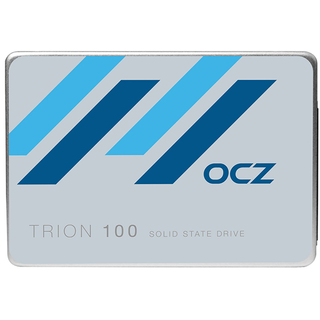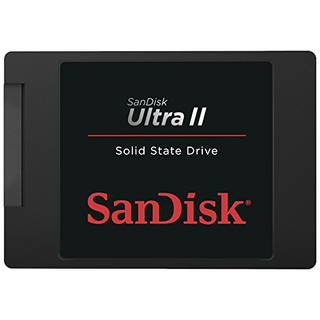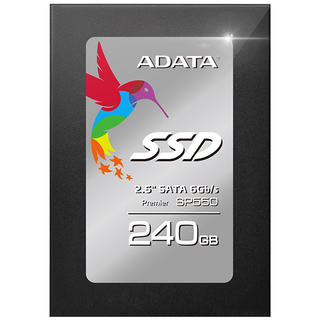Tigo T-One 240GB Low Cost SSD Review
Why you can trust Tom's Hardware
Four-Corner Performance Testing
Comparison Products
The 256GB-class drives in today's charts still represent a broad range of what you'll find for sale. Adata's SP550, for instance, is nearly identical to the Tigo T-One. Both utilize the same controller and flash. The Crucial MX200 and Samsung 850 EVO belong to the mainstream tier with slightly higher prices compared to the other products. OCZ's Trion 100, Plextor's M6V, Adata's SP550 and SanDisk's Ultra II all fall into the same entry-level category as Tigo's T-One.
Sequential Read
To read about our storage tests in-depth, please check out How We Test HDDs And SSDs. Four-corner testing is covered on page six of our How We Test guide.


At low queue depths, the 240GB T-One delivers less than 500 MB/s in our sequential read test. The drive does kick into a higher gear as the queue depth increases to four and beyond. However, most desktop workloads don't stack commands that deep. It really takes a workstation-level application to get a modern SSD backed up to higher queue depths.
Sequential Write



Three of the five SSDs with TLC flash present us with erratic performance results. This comes from the emulated SLC (single-level cell) buffer that briefly increases write performance to try to mask native TLC performance. The 240GB T-One writes 64KB blocks at 350 MB/s to that cache, and then 85 MB/s to TLC flash once the buffer fills.
The SLC does a good job of masking TLC performance in small bursts. Beyond that, write performance lags even mechanical storage, which detracts from your experience. Installing a game, for example, will happen at 85 MB/s or less. Many newer 7200 RPM disks can write data at 200 MB/s or more. You will also notice the lower sequential write speed when transferring files over a GbE network. Instead of enjoying a steady 110 to 115 MB/s, performance is limited to 85 MB/s or less.
Random Read



Samsung's 850 EVO made its mark by being the first drive with TLC flash to deliver over 10,000 random read IOPS at a queue depth of one. That's the cutoff we use to separate mainstream SSDs from the enthusiast-class ones. The over-10,000 club is very exclusive, and even some PCIe-based drives don't make the cut.
Tigo's 240GB T-One only hits 7150 random read IOPS in this metric. But remember how much it costs. As the workload intensifies, our results do scale well. However, Tigo still fails to outperform the two-year-old 850 EVO.
Random Write



Low random write speed is more concerning since the drive doesn't scale well and relies heavily on its small emulated SLC buffer. Even though you're getting better numbers than you'd see from a hard disk, they're weak in comparison to other SSDs. It's something you'll have to consider before making a purchase.
Current page: Four-Corner Performance Testing
Prev Page Specifications, Pricing, Warranty And Accessories Next Page Mixed Workload And Steady StateStay on the Cutting Edge
Join the experts who read Tom's Hardware for the inside track on enthusiast PC tech news — and have for over 25 years. We'll send breaking news and in-depth reviews of CPUs, GPUs, AI, maker hardware and more straight to your inbox.
-
James Mason Would have like to see a price to performance chart to compare all the ones tested.Reply -
darcotech The price of Samsung EVO 850 250Gb is 88.67USD not 149.99. And could be probably found even cheaper.Reply
Buying cheap SSD from non established company is big no for me. My data are on it, and I want to feel safe (even if I have backup). -
joex444 Even if you wanted to spend just $61 on a 240GB SSD, there are other options. PNY, AData, and Kingston all offer 240GB SSDs *lower* than $61. These are all companies that have been around for a good amount of time whereas Tigo is a completely unknown company from China, which tends to be a source of lower quality parts compared to S. Korea, Japan, or Taiwan.Reply -
shrapnel_indie Tektronix is an old U.S. company that still exists. I hope the opening statements were about when Tigo started and not them as Tektronix got its start in 1946.Reply
http://www.tek.com/about-us -
RobinEricsson > Tigo is a division of TektronixReply
Tektronix, as in the electronics test and measurement tool company (http://www.tek.com/ )? Are you sure about that?
It doesn't seem that computer memory and oscilloscopes are closely related. Plus the website of Tektronix's parent company, Danaher, doesn't list Tigo or its worldwide brand Kimtigo as one of the companies in its portfolio (http://www.danaher.com/our-businesses/business-directory ). -
captaincharisma its like every computer related company in the world is selling its own SSD drives nowReply -
mapesdhs I recently tested a Gloway SSD (a model eBay keeps pushing in its "other items like this" listings), easily one of the worst models I've ever come across, terrible write speeds. Definitely avoid.Reply -
rhysiam Your verdict seems a little scare-mongering and introduces a theme which (unless I've missed it) wasn't addressed anywhere else in the review" "you need to decide if losing data is worth the $20 you saved".Reply
What are you basing that on? Have you got data or theory or at least personal experience to back that up?
That line made me go and read the article, assuming I'd find a story of multiple failed drives during your testing process, but I can't see a single sentence about reliability or data retention in the article (correct me if I'm wrong!) You shouldn't really advise your readers to avoid a drive because it'll lose their data if you haven't actually addressed or supported that assertion in the article itself. -
CRamseyer Here is the deal with reliability. The big names in the industry do no cut corners. Samsung, Intel, Micron/Crucial, SK Hynix, Toshiba and SanDisk are the fab companies. They make the flash and they also get first pick when from the production. These companies also know about features in the memory to enable or disable to increase reliability, performance and so on. Most of the extra switches have to do with the ECC (linked to reliability).Reply
I kill SSDs all of the time. It happens so often that I don't even think about it when it happens. Many of the companies send me early drives to test with pre-release firmware. I would estimate that 2 our of every 5 die during testing. Retail products have a much higher success rate. I may kill one in every 60 or so. My testing goes well beyond what anyone would consider normal use so don't let the high percentage take away from buying a new SSD.
When a product review goes live that isn't the end of my testing. At any time I'm developing 3 to 5 new tests for consideration in SSD or NAS reviews. Every once in awhile you will see one of these tests in a regular review to show a corner case problem.
With that said, it's rare for a fab company SSD to fail. I'm not saying they never fail, just the rate is much lower than products from smaller companies. I have around 300 SSDs (maybe more) dating back to 2007 so we are not talking about a small sample size.
Last but not least, I've been in 4 test labs. Two of the companies were fab companies and two were not. The difference is night and day between what the big names in the industry do compared to what the smaller companies do.
That is not to say that I would never use SSDs from smaller companies. I do use them in my lab but when it comes to systems I keep valuable data on, I use fab company drives. -
wh3resmycar ocz trion 100 goes for like $50 here in the philippines (240gb). i use my ssd for games mainly and considering i have a 100MB connection i can afford to have a broken ssd and redownload my whole librabry in a couple of hours.Reply



